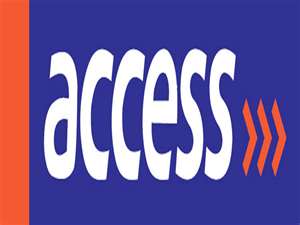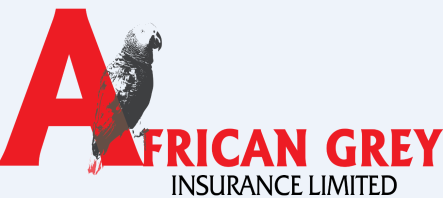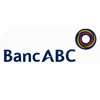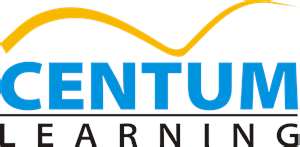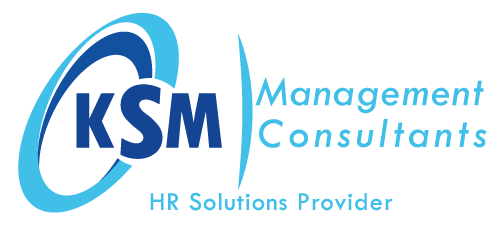EFFECTIVE OFFICE MANAGEMENT AND ADMINISTRATIVE SKILLS FOR PA’S, OFFICE ASSISTANTS AND SECRETARIES
16-18 May, 2018 | Chita Lodge, Kafue
WORKSHOP OVERVIEW
Effective Office Management and Administrative Skills training is an exciting and interactive training course. It is designed to provide office administrators, supervisors of clerical and administrative staff, executive secretaries and personal assistants the opportunity to review and develop the interpersonal and professional skills they need to do their jobs effectively – thereby contributing to their own, their boss’ and their organization’s success. In this training participants learn how to:
· Manage a network of working relations
· Communicate effectively
· Manage time for yourself and others
· Manage the performance of admin staff
· Improve written communications
· Manage and present information
· Organize and improve office systems
TRAINING OBJECTIVES
· Extend their understanding of their roles and the key contribution they make t organizational success
· Review their working relationships
· Review and develop their personal organisation, communication and interpersonal skills
· Develop an action plan to help themselves, their boss and other colleagues work in more effective and efficient ways
· Gain insights into the responsibilities of administrators
· Value their role in an organization and experience greater job satisfaction
· Analyze planning and organizing skills to achieve tasks-develop office procedures for efficiency and effectiveness
· Develop office procedures, critical thinking abilities and communication skills for greater efficiency and effectiveness
· Build an approach that suits their own individual style and workplace
WHO SHOULD ATTEND
All administrative personnel and people newly appointed to supervisory roles, along with Secretaries and PA’s within the office environment, who want to build on their skills and knowledge
COURSE DETAILS
DAY 1
PROGRAMME INTRODUCTION/ROLES, COMPETENCES AND PERSONAL EFFECTIVENESS
· Programme introduction and objectives
· Action planning
· The ‘competence’ model of skills, behaviors and values
· Emotional and Chronistic Intelligence
· Personal competence review
· Time management constraints – resources, systems, other people and self
· Handling requests and conflicting priorities
TEAM WORKING, COMMUNICATION AND MEETINGS
· Team working and team roles
· Briefing skills – giving, receiving and passing on
· Organizing and participating in meetings
· Notes, minutes and follow-up
DAY 2
MANAGING WORKING RELATIONSHIPS /COMMUNICATION SKILLS/SUPERVISING ADMIN STAFF
· Delegation – giving and receiving
· Coaching and training colleagues and staff – skills of on-job training
· Communication and listening skills – lessons from NLP
· Building rapport
· Developing a network of working relationships – influencing skills
· Assertiveness and conflict
· People problems and problem people
· Helping others perform – case study
· Practical motivation
· Criticism skills
MANAGING TIME/DESK MANAGEMENT AND OFFICE TECHNOLOGY/WRITING SKILLS
· Planning and priority setting
· Office layout and ergonomics
· Managing the paper-load and developing paperless systems
· Getting the best from office technology
· Letter writing
· E-mail efficiency and etiquette
· Writing and editing reports
· Proof-reading skills
· Setting up/developing writing layout and style guidelines for the organisation
· Writing & designing presentation slides
DAY 3
MANAGING INFORMATION & BUDGETS/IMPROVING CUSTOMER SERVICE AND SYSTEMS
· Principles of information management – scheduling, filtering and digesting
· Interpreting and presenting statistical information
· Designing and using graphs
· Designing surveys, presenting findings and interpreting meaning
· Basic concepts of financial management
· Monitoring budgets and variance
· Improving customer service and systems – continuous improvement
· Action planning
SELF-EMPOWERMENT AND SELF-MANAGEMENT
· Understanding the main causes of stress
· How to build self-confidence and strength the ability to respond to difficult situations
· How to relax and refresh the mind and body
· The signs, symptoms, causes and triggers to stress
· Why stress is a powerful messenger
· How to break the vicious cycle of stressful thinking
· The essential skills of emotional intelligence
· Using emotional intelligence at work
· Transforming fear and negativity and reactive-ness
· Becoming a more proactive, responsible and self-aware person
· Effective Time Management
EARLY BIRD OFFER
10 % Discount on bookings and payment made 10 work days before the event date.
Enroll 3 participants and get the 4th at 50% Discount.
FEES
K1,599 Per delegate (inclusive of teas, lunch & certificate)
FOR MORE INFORMATION, BOOKINGS AND CLARIFICATION, CONTACT:
Phone- 0211 295486, 0975 844051;
Email- This email address is being protected from spambots. You need JavaScript enabled to view it.
26-27 April, 2018 | Fringilla, Chisamba
Now that you have been in a supervisory role this far and have acquired knowledge of how to manage people or perhaps have attended a supervisory skills training before, it’s about time you attended the Advanced Supervisory Skills Training. Learn how to adjust from leading and supervising at level 1 to leading and supervising at level 5.
This training will enable you to be ready at all times and to become an efficient leader. Learn how to scale up yours and your team’s performance. Learn how to dragonize the needs of your people and how to influence change. As an advanced leader, you will learn how to manage be in control of the complex, dynamic and modern work environment.
Participants will
- Understand how your leadership style impacts your staff and those around you
- Learn how to utilize the strengths of each player in the team for optimum results
- Learn how to use effective Communication Skills to get things done
- Have incite of and appreciate the Labour laws of Zambia
- Know and identify Key performance areas and seal up the gaps
- Know how to involve your team on how to effectively conduct a SWOT Analysis
- Identify critical leadership competencies required and learn from successful Leaders
- Appreciate fundamentals of Motivation and how to gain long term results
- Learn how to manage time, plan for success and organize busy teams
- Learn how to coach and mentor your staff
- Know how to get involved in Budgeting and how to be a smart spender
- Learn how to lead yourself by managing your emotions – Emotional leadership
- Learn how and when to Operate at Level 5 of the leadership ladder
- Learn what to do to Leave a legacy – A mark of a leader
- Learn to Focus and achieve
WHO SHOULD ATTEND
- Senior and experienced supervisors who would like to develop into managerial responsibility
- Supervisors who would like to develop into a more senior supervisory role
- Senior supervisors who would like to refresh and develop their skills
- Supervisors who would like to develop their practical and relevant skills and techniques
- Senior team leaders
- Senior project supervisors
FEES: K2,999 per participant (teas, lunch, material, certificates inclusive)
EARLY BIRD OFFER: 10 % Discount on bookings and payment made 10 work days before the event date. Enroll 3 participants and get the 4th at 50% Discount.
For bookings and clarification, contact: Phone- 0211 295486, 0975 844051; Email- This email address is being protected from spambots. You need JavaScript enabled to view it.
15 - 16 March, 2018 | Golden Peacock Hotel, Lusaka
Senior managers are often promoted for technical and operational excellence but, without a background in finance, they can find themselves reliant on finance managers and accountants when it comes to the numbers.
This training programme focuses on sound financial decision-making, evaluating investment proposals, making sense of financial reports and the essentials of budgeting and costing. You will gain the basic foundation in finance you need to become more effective in your role, enabling you to lead your organisation without fear of the numbers.
TRAINING MAIN OBJECTIVE
To raise the level of financial awareness of participants and enable them to use the financial information
provided to make better short-term or long-term decisions in managing their businesses.
INDIVIDUAL BENEFITS
• Understand key financial terms
• Make sense of financial reports
• Measure financial performance
• Understand core concepts for financing your business
• Undertake financial planning and budgeting
• Evaluate investment proposals
ORGANIZATIONAL BENEFITS
Every business decision made by managers across all functions has a financial impact. This training will help to verify that managers are competent in their understanding of good financial practices.
WORKSHOP CONTENT OVERVIEW
The following key themes are explored:
• Introduction to finance
• Financing the business
• Capital investment
• Measuring financial performance
• Financial planning and budgeting.
• Understand the language and basic concepts of finance
• Better understand the requirements of finance
• Apply financial concepts and methods to your own business decisions
Financial Accounting
• Learn about accounting principles
• Apply those accounting principles to various exercises
• Learn about recognition of revenues and costs
• Construct a P&L and a balance sheet based on case study
• Learn about elements of a cash flow statement
• Construct cash-flow statement based on case study
Cash Operating Cycle
• Understand the cash operating cycle and what affects a company’s cash flow
• Manage the cash operating cycle
Financial Ratios and Analysis
• Learn about financial ratios to measure profitability, liquidity and assets management
• Case study to analyse a business, including presentation of your findings
Working Capital and Asset Management
• Understand the importance of working capital management
• Learn about methods to measure inventory, accounts receivable, accounts payable
• Discuss various methods to reduce inventory
• Discuss various methods to reduce accounts receivable
• Discuss various methods to keep capital expenditure under control
Costing and Pricing
• Learn about significance of various cost concepts and methods
• Distinguish between relevant and non-relevant costs for decision taking
• Case study to determine relevant costs for pricing
• Apply pricing strategies to case study
• Break even calculations
• Exercises to project costing and make or buy decisions
• Investment Appraisals
Discuss types of investments
• Learn about various methods to determine the return of investment
• Discuss relevant costs for investment decisions
• Exercises to calculate Payback, NPV, IRR
• Discuss non-financial aspects of investment decisions
Profit versus Cash
• Understand the difference between the impact on profit and cash of typical transactions which companies undertake
• Be clear on why cash is king.
Budgeting
• Learn about the role of budgeting
• Discuss various budget approaches
• Exercises to budget variance analysis
WHO SHOULD ATTEND?
Sales and marketing executives; Supply-stream professionals; Project professionals; Internal Auditors; Any non-financial professionals who are required to read, interpret, and contribute to business financial reports; Senior professionals of manufacturing, marketing, engineering; Human resources professionals; Legal professionals; Executive professionals who are involved with development of long-term customers, suppliers, outsourcing partners, and other global strategic alliances; Consultants who work with professionals and executives, to support improvements to operational and financial processes.
FEES: K2,999 Per delegate (inclusive of teas, lunch & certificate)
EARLY BIRD OFFER: Get 10 % Discount on bookings and payment made 10 work days before the event date. Enroll 3 participants and get the 4th at 50% Discount.
For more information, bookings and clarification, contact: Phone- 0211 295486;
Email- This email address is being protected from spambots. You need JavaScript enabled to view it.
11-13 April, 2018 | Chita Lodge, Kafue
Performance Management has now become more critical than ever before. The art of measuring and managing employee productivity has been reinforced by the new labour laws. Now employers are required to give reasons for terminating an employment contract. Employers are required to follow due process before terminating an employee’s contract through performance. The dynamics and challenges of knowing when and how to motivate, reward employees, improve and sustain employee productivity levels now sit squarely with the employer.
Employers now have no choice but to implement a robust, tried and tested Performance management
System (PMS).
At this workshop, participants will;
1. Learn how to draw up Employee Performance Contracts
2. Understand the link between Strategic Goals and Performance Management
3. Appreciate the principles of: what gets measured - Gets Done
4. Understand how a Performance Balanced Scorecard tool works
5. Discover what Psychological Contract truly means – the unwritten business rule Know that
6. Everybody is watching - Getting a 3600 Multi Source Performance Feedback
7. Know what Performance Coaching is and how it really works
8. Learn how to manage an Effective Performance Review meeting
9. Learn how to deal with a difficult Supervisor / Appraiser or difficult Employee / Appraisee
10.Learn how to manage Under-Performing subordinates as Supervisors / Employers
11.Learn how Performance Relates to Pay (PRP)
12.Understand the role of Unions in Performance Management
13.Learn what the new Labour laws say about Performance of employees
WHO SHOULD ATTEND
CEOs, CFOs, COOs, Finance, Business Controllers, Compensation and Benefit, Operation, Heads of departments.
FEES: K3,500 Per delegate (inclusive of teas, lunch & certificate)
EARLY BIRD OFFER: Get 10 % Discount on bookings and payments made 10 work days before the event date. Enroll 3 participants and get the 4th at 50% Discount.
For more information, bookings and clarification, contact: Phone- 0211295486; 0975 844051, Email- This email address is being protected from spambots. You need JavaScript enabled to view it.
RECORDS MANAGEMENT WORKSHOP
18-19 April, 2018 | Pamodzi Hotel, Lusaka
This workshop will equip those with records management responsibilities to further their careers by being able to converse at a strategic level regarding current important topics in records and information management. The course is deliberately held at a high level, and requires active participation from participants.
COURSE OBJECTIVES
• What is records management
• Discover legislative impacts on records management
• What is so critical about records management
• Who is responsible
• Contrast traditional records management and electronic records management
• How to manage the risk and security
• Achieving and disposal
WORKSHOP CONTENT
1. Current legislative impacts on records management
• The Protection of Personal Information Act
• The implications for records management
2. Strategic Planning and Management for Records and Archive Services
• Identify the Corporate Drivers facing the organization
• Determine the key management issues facing document and records management
• Conducting an audit/maturity assessment
• Creating a roadmap based on the audit findings
• Implement a Records Management programme
• Create a change and communications management plan
3. Content Lifecycle Journey of Record Management
• How to capture documents
• How to classify the documents
• Understanding storing and retrieving
• Use, archive and dispose
4. Beyond basic Electronic Records – critical issues to consider
• Long-term preservation
• Metadata
• File naming
• File formats
• Storage facilities and procedures
• Digital media
• Evaluation of records management systems
• Digital imaging
• E-mail management
• Web content management
• Electronic and advanced electronic signatures
5. Information Governance (Beyond Records management, Risk and Security)
• Information Governance and Generally Accepted Recordkeeping Principles (GARP)
• Records management in relation to other enterprise initiatives
• Conversion of paper documents and records to electronic files
• Records Management
• Content / Knowledge Management
• Collaboration / Work-flow engines
• Version control
• Electronic forms management
6. Transparency and Records Management
• Transparency implications for records and information management
• Records Management as a tool for establishing transparency and accountability
• Records Management maturity levels
7. Managing Social Media Records
• Introduction
• Understanding Social Media
• Social Media as a record.
• Retention of Social Media communications
• Social media as a records management tool
• Managing Social media records using GARP principles
8. Managing Documents & Records in the Cloud
• Understanding “The Cloud”
• Different “Cloud” and deployment models
• Advantages and disadvantages of cloud storage
• Discussing the implications for records management
• Determining whether the cloud is right for your organisations records
• Key action steps
9. Business Classification Schemes
• What is a business classification scheme
• Integrating paper, electronic and e-mail classification schemes
• Extended file plan and metadata models
• Naming Conventions
10. SharePoint 2010 E-Records Management
• Reviewing the capabilities and features of SharePoint 2010 Records Centre
• Configuration options
• Planning considerations
• Managing physical records with SharePoint
11. Record Keeping Policy
• The Legislations
• Procedures
• Retention
• Authorization
• Achieving
• Disposal
12. Record Achieving
• What is achieving
• How to achieve systematically
• Benefits of achieving
13 Record Disposal
• What is record disposal
• The process
• What are the benefits
WORKSHOP OUTCOMES
• Understand the implications of new legislation on records management and guide the organisation to becoming compliant
• Create a strategic plan for a records improvement process
• Align the records management Programme to the corporate goals and objectives
• Provide input into the the Enterprise Content Management initiatives of the organisation.
• Prepare the organisation for Information Governance, beyond IT Governance
• Assist the organisation in balancing the needs for Privacy versus Accessibility of records
• Lead the process for managing social media as records where appropriate.
• Make informed decisions as to whether the "Cloud" is a suitable repository for organsational records
• Look beyond traditional "File Plan" thinking and start developing value-based records classification schemes
• Inform the organisation of the pros and cons of SharePoint as a records management system.
WHO SHOULD ATTEND
• Records Managers
• Information Governance professionals
• Departmental managers responsible for Records Management
• IT staff responsible for records management
• Representatives from National and Provincial Archives
• Representatives from watchdog organisations responsible for Industry Governance
EARLY BIRD OFFER
10 % Discount on bookings and payment made 10 work days before the event date. Enroll 3 participants and get the 4th at 50% Discount.
Fees: K2, 500 Per delegate (inclusive of teas, lunch & certificate)
For more information, bookings and clarification, contact:
Phone- 0973100395; Email- This email address is being protected from spambots. You need JavaScript enabled to view it.
Some of Our Clients

